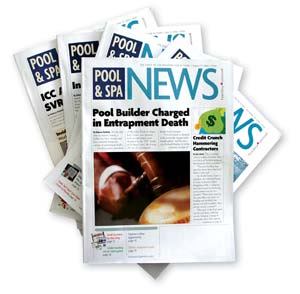An undercover sting operation in March by California’s Contractors State License Board found 10 contractors in the Bakersfield area operating without licenses. Of those, eight were pool service contractors.
Called the “Spring Blitz,” this most recent sting was one of three that happen semi-regularly throughout the year. The Bakersfield sting occurred simultaneously with others across California. All told, 85 remodeling contractors were caught in the Golden State over a two-day period.
Partnering with the Kern County District Attorney’s Office and the Sheriff’s Office, investigators from CSLB’s Statewide Investigative Fraud Team called suspected unlicensed operators for home improvement bids.
Targeted contractors went to a home where SWIFT investigators posed as homeowners. The “clients” sought quotes for work that exceeded $499, which is the maximum that contractors can collect on a job without a license in California.
Contractors were asked if they had licenses; those who denied having one were arrested by nearby local law enforcement.
Bakersfield was the only area where pool and spa service technicians were targeted. CSLB went after them due to the high number of complaints they received in that area.
“We had a lot of cases where people who did not have a license and weren’t properly trained were installing or improperly maintaining pools,” said Melanie Bedwell, a CSLB spokeswoman.
The majority were cited for contracting without a license and illegal advertising. A couple were charged with not supplying workers’ compensation insurance.
Under California law, these citations can carry hefty fines and jail time. Contracting without a license has a first penalty conviction of up to six months in jail, fines up to $5,000, or both.
State law requires contractors to put their six-digit license numbers in all advertisements. Those without licenses can advertise for jobs that are worth less than $500, but their ads must state that they are not licensed. Violations bring a fine between $700 and $1,000.
Several industry professionals said they believe up to 80 percent of pool cleaners work unlicensed. “Some of [these guys], if they’ve got a net, a pole and a truck … they’ll do it,” said Brad Ward, owner of Atlas Pool Care in Bakersfield.
Ward, who called the sting “outstanding,” thinks it sends the message to servicepeople that they need to play by the rules. He’d like to see them happen every day.
In California, pool service companies must obtain a C-61 limited specialty license, with a D-35 subcategory. It covers above ground pool work, including the installation and maintenance of motors, pumps and filters. Work on electrical switches, pool lights, diving boards and existing solar systems also is covered.
Those who construct pools or install new solar equipment need a C-53 license.
At least one person per company must hold the appropriate license.
Service groups such as the Independent Pool & Spa Service Association consider a contractor license a requirement. “[Our requirements] used to say ‘IPSSA recommends a license for everything you do,’” said Bob Nichols of the IPSSA Outreach group. “Maybe four or five years ago, we changed it to say, ‘You shall be licensed.’”
If money is a concern, IPSSA offers a scholarship that covers the cost of needed training. “We will [cover] a man’s education to get his contractor license,” Nichols said. “It’s not really a burden to them. … Their only fee is to take the test.”
– Copyright – CSLB video


